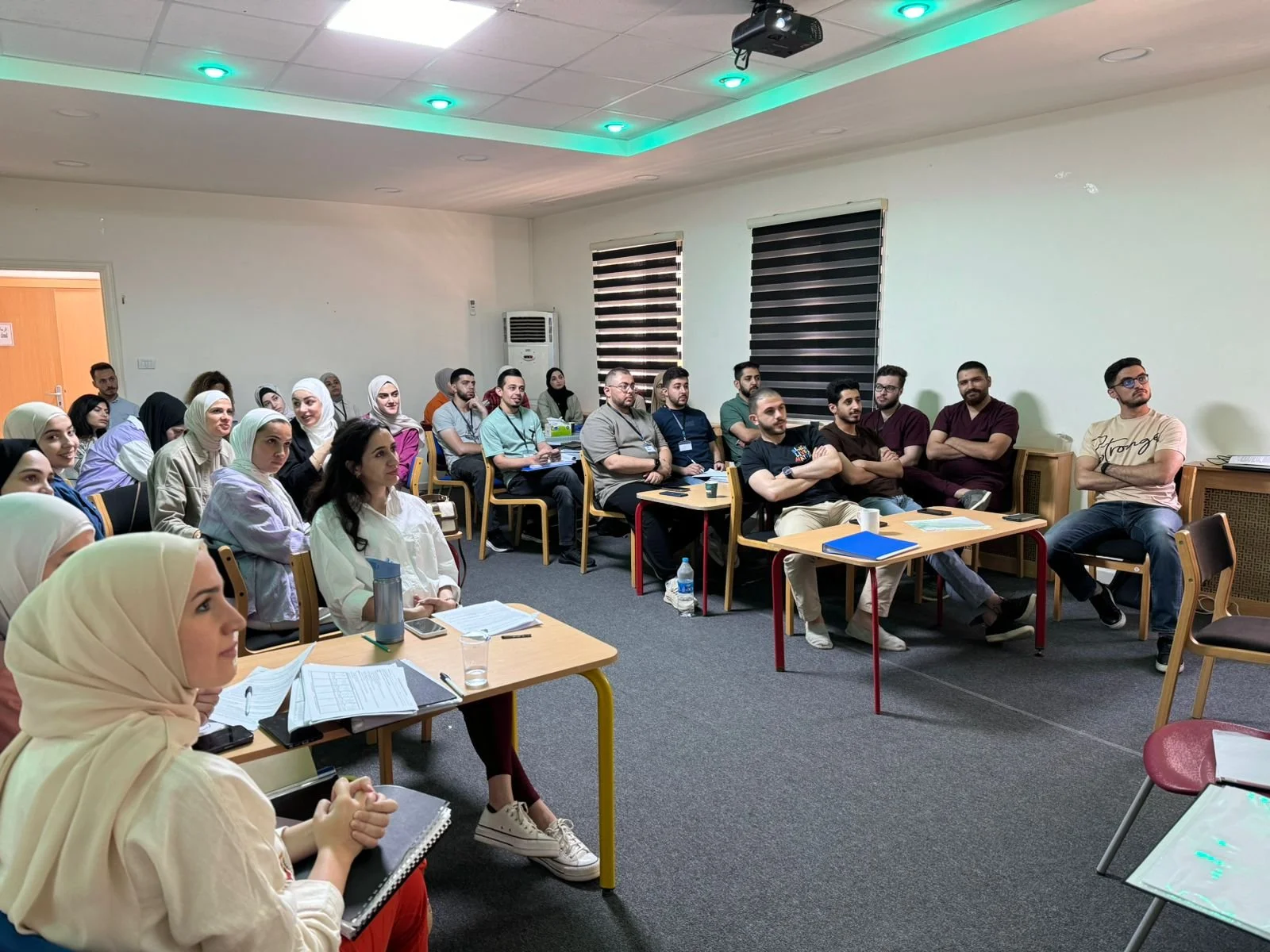Training and Awareness
Public Awareness and Seminars
We are active in promoting public awareness through talks, seminars and workshops at various community settings. We are also active in providing consultations and support to schools in our community. We are particularly concerned with increasing awareness towards the importance of early detection and the benefits of intervention, as well as aim to develop positive attitudes towards special needs children and their families, and advocate the rights of persons with disabilities in our community.
Student Training
Al-Masar provides opportunities for field work training for students studying occupational, speech-language and physical therapy as well as special education at several local colleges and universities.
Get in Touch
FAQs
-
Typically, your child’s pediatrician or teacher may notice a delay in your child’s development and recommend that your child be evaluated. If you as a parent notice a delay in your child’s development, you should discuss your concerns with your child's pediatrician, teacher or directly contact Al-Masar to discuss your child’s development.
-
Please call us and give your contact information to the receptionist. You will then be asked questions regarding the nature of your child's difficulty. Depending on the area of development in which the child’s difficulties are manifested, a specialist will call you back, and you will be advised to conduct either a consultation or an assessment for your child.
-
A developmental evaluation can be in any one of the following disciplines: educational, occupational, physical or speech-language and is typically conducted in 4 visits:
Visit #1: initial meeting with the parents to gather background information and medical history
Visit #2: initial evaluation visit with the child
Visit #3: second evaluation visit with the child
Visit #4: meeting with the parents to discuss the written report and recommendations
The therapist conducting your child’s evaluation helps determine whether your child needs any further assessment by another discipline.
Evaluations for specific issues such as articulation disorders, stuttering or handwriting for high school students may be conducted in one visit.
-
Each child’s need is different. The number of therapy sessions will be determined by the results of the initial evaluation. However, typically, children start off with one to three sessions per week. The frequency of therapy can be modified depending on the child’s progress.
-
It is very difficult to predict the length of time that a child will need therapy for as there are many factors involved, including: the diagnosis and its severity, the child’s behavior, parents’ follow-through at home and the child’s rate of progress.
-
Each session, whether physical therapy, occupational therapy, speech therapy, or behavioral therapy (ABA) lasts for 50 minutes.
-
If a child does not reach a developmental milestone at the expected time, he or she may be having a developmental delay. However, it is not considered a delay if it is slight or temporary. The delay can occur in one or more areas of development (cognitive, motor, language, communication, social and/or emotional).
-
A developmental disability is a life-long and chronic disability that occurs in the developmental years (before the age of 18). It may be attributed to a mental or physical impairment or a combination of both. Developmental disabilities include but are not limited to: intellectual disability, cerebral palsy, epilepsy, autistic spectrum disorders, Down syndrome.
-
An LD can be found in children of normal intelligence who have difficulties in specific areas of learning. An LD may affect one or more areas of a child's learning abilities such as understanding or using spoken or written language, doing mathematical calculations, coordinating movements or attending to tasks. Although indications of learning disabilities may occur in very young children, in which case early intervention is recommended, the disorder is usually not formally diagnosed until the child reaches the age of seven.
-
Yes! Parents are an integral part of any child’s therapeutic or educational program. Therapists and teachers will maintain regular contact with the parents. Children receiving services across multiple disciplines will also have a detailed individualized educational/therapeutic plan for the parents to review. Parents are encouraged to periodically attend or observe the therapy session in order to learn ways to carry over the treatment in the home. Goals will be accomplished more readily while working together as a team: parent, child and therapist.
-
Most of our staff is bilingual in Arabic and English. Accordingly, therapy sessions may be conducted in either language. Al-Masar School Program offers its individual educational program to students in either Arabic or English language depending on the parents’ request; however, students are exposed to both languages during the classroom group activities, as both languages are used when giving instructions to the different students in the classroom.
-
If you feel that your child is a good candidate for Al-Masar School Program, get in touch with us! You will be contacted shortly afterwards and have an appointment scheduled to assess your child’s needs. The purpose of this assessment is to ensure that Al-Masar School Program is the best educational setup to suit your child’s educational needs. If Al-Masar is indeed the right place for your child, then the registration process will begin. Otherwise, you may be advised to seek enrollment in mainstream schools while receiving the necessary therapy services for your child through Al-Masar, or you may be advised to seek other special education setups in the community.
-
Al-Masar provides transportation services for the children enrolled in the School Program and the Early Intervention Program according to availability. However, it is not provided for students attending our therapy services.


